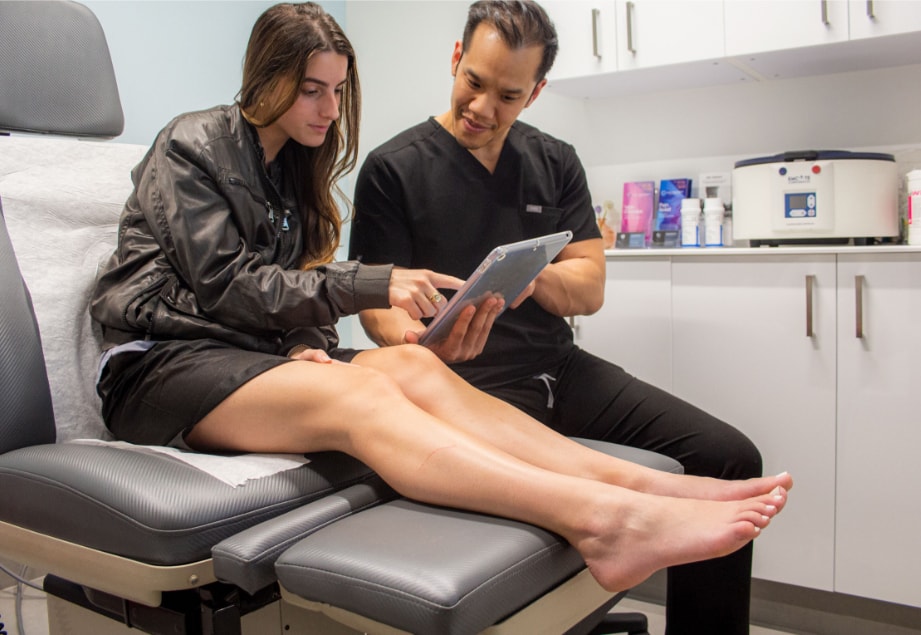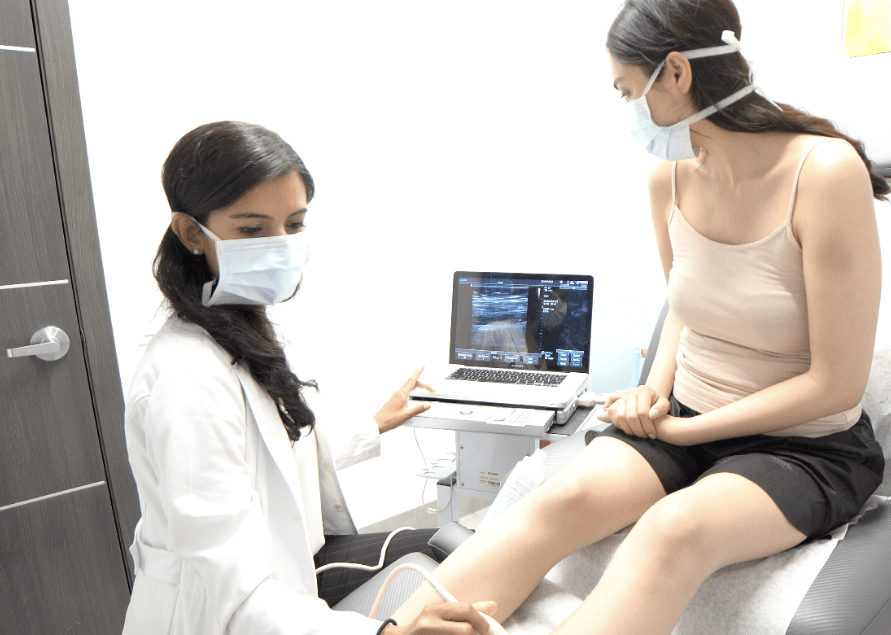They appear as enlarged, twisted veins, often occurring in the legs and feet. While they are typically considered a cosmetic concern, varicose veins can sometimes lead to more severe health issues. Understanding the risks and considerations associated with varicose veins is crucial for effective management and treatment. If you are wondering "what doctor treats varicose veins?" then it would be best to continue reading the article.
A vascular physician is a medical professional who cares for your vascular system or blood vessels. Your vascular system includes arteries, veins, and the small capillaries that link them. Arteries transport oxygen and nutrients in your blood. Blood in your arteries flows away from your heart and out to all of your body's tissues, supplying them with what they need.
Causes and symptoms
Varicose veins result from problems with the valves of the veins, which are supposed to ensure correct blood flow. This brings congestion in the veins, and the veins start to look swollen and appear to be bulging out. Risk factors that inform vulnerability to varicose veins include age, heredity, pregnancy, fatty tissues, and sedentary lifestyle.

The signs/symptoms of varicose veins are pain/aching in lower limbs, swelling and burning, throbbing, muscle cramps, and itching around the affected veins. Sometimes, the veins themselves may become painful or problematic, sore, and in some instances, may lead to skin changing its color.
Health risks
1. Chronic Venous Insufficiency: A major complication of varicose veins is the development of chronic venous insufficiency (CVI). This condition is caused by the failure of veins to transport blood back to the heart, hence the increasing time that it takes to eliminate blood from the extremities.
2. Blood Clots: This condition poses a threat to the development of blood clots in the veins that are commonly referred to as superficial thrombophlebitis. It is, however, important to note that although such clots are not severe or fatal, they may lead to pain.
3. Skin Changes and Ulcers: In the long term, they can cause alterations dermatological, manifested by eczema or lipodermatosclerosis of the skin. In the advanced conditions, the skin becomes disrupted and creates ulcers, which are rather hard to treat and often infected.
4. Bleeding: The veins that are near the skin can, at times, burst and bleed where they are situated, the varicose veins. Although this is mostly innocuous, it can be concerning and could necessitate a doctor's attention if sustained.

Management and treatment
1. Lifestyle Changes: In most cases, people can minimize the experiences of the symptoms and the progression of varicose veins by making the right life changes. It is recommended that one exercise, keep one's weight under check, stand or sit with the legs raised, and refrain from being on the feet for long or seated for long.
2. Compression Stockings: That is why wearing compression stockings can help to relieve the pain as it exerts pressure on the legs that in turn helps veins and muscles of the legs to pump the blood effectively.
3. Medical Treatments: In the worst-case scenarios, treatment may be required for the regressing symptoms that either do not go away with the use of medications or are worsened by the medication. The goal of laser therapy is to treat the affected veins by shutting them off using light. Sometimes surgical interventions, including vein stripping or ligation, could be conducted.
4. Consultation with a Specialist: Persons with the varicose veins, therefore, need to seek the opinion of a doctor who specializes in blood vessels, particularly a vascular surgeon or a phlebologist.
Conclusion
Although varicose veins are considered a beauty problem today, in severe cases, they become a dangerous disease. Any complication that is bound to prevail after an eventual diagnosis is well understood alongside the factors of concern that are in relation to varicose veins. Thus, it has been disclosed that people with the condition can lead healthy lives by modifying their diet, taking appropriate medications, and consulting with healthcare practitioners.